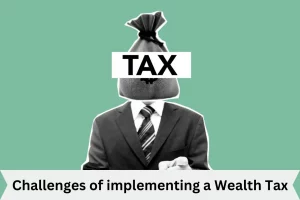ForumIAS announcing GS Foundation Program for UPSC CSE 2025-26 from 19 April. Click Here for more information.
ForumIAS Answer Writing Focus Group (AWFG) for Mains 2024 commencing from 24th June 2024. The Entrance Test for the program will be held on 28th April 2024 at 9 AM. To know more about the program visit: https://forumias.com/blog/awfg2024
Source: The post challenges of implementing a wealth tax has been created, based on the article “Piketty’s wealth tax: An idea that just can’t work” published in “Live mints” on 28th March 2024.
UPSC Syllabus Topic: GS Paper 3 – Indian Economy – Inclusive growth and issues
News: This article discusses the rise in billionaires in India and the debate about introducing a wealth tax. It argues that while a wealth tax might seem fair, it’s difficult to implement and could have negative effects on the economy. Challenges of implementing a wealth tax
What is the current status of wealth inequality in India?
Increase in Billionaires: India has seen a rise in billionaires, with 94 new additions, reaching a total of 271.
Comparison with Other Countries: This growth is higher than in China, which added 55 billionaires, now totaling 814.
Global Billionaire Rankings: India’s total number of billionaires is significantly less than China and the US.
Wealth Disparity Concerns: A study by Thomas Piketty highlights extreme wealth disparity in India, indicating the richest 1% hold a disproportionately large share of wealth.
What does Thomas Piketty’s research suggest?
Wealth Inequality in India: Piketty’s research, specifically his paper “Income and Wealth Inequality in India, 1922-2023,” focuses on the growing wealth gap in India.
Top 1% Holding More Wealth: The study highlights that India’s top 1% hold a large and increasing share of the nation’s wealth, is at a historically high level.
Wealth Growth Outpacing Income: Piketty notes that when the return on capital surpasses general income growth, it disproportionately benefits the wealthy, leading to a wider wealth gap.
What are the challenges of implementing a wealth tax?
Difficulty in Fair Assessment: Assessing and taxing wealth is complex, particularly with diverse assets like real estate and cryptocurrencies.
Liquidity Problems: A wealth tax could unfairly burden people with illiquid assets, like a home, which might need to be sold under distress to pay taxes.
Visibility of Assets: Visible assets, especially stocks, are easier to tax, but this could unfairly target certain forms of wealth.
Economic Impact: A wealth tax might discourage businesses from going public and could lead to capital flight to lower-tax countries.
Inefficiency in Capital Allocation: Such a tax could make capital allocation less transparent and efficient, adversely affecting the economy.
Question for practice:
Examine the potential economic impact of implementing a wealth tax in India, given its rising billionaire count and wealth disparity issues.





